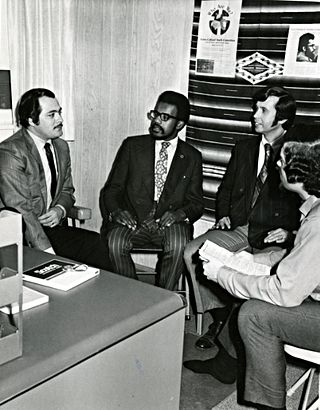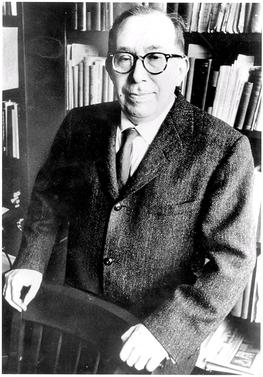Related Research Articles

Plato was an ancient Greek philosopher born in Athens during the Classical period in Ancient Greece. In Athens, Plato founded the Academy, a philosophical school where he taught the philosophical doctrines that would later become known as Platonism. Plato was a pen name derived, apparently, from the nickname given to him by his wrestling coach – allegedly a reference to his physical broadness. According to Alexander of Miletus quoted by Diogenes of Sinope his actual name was Aristocles, son of Ariston, of the deme Collytus.

The Socratic method is a form of cooperative argumentative dialogue between individuals, based on asking and answering questions to stimulate critical thinking and to draw out ideas and underlying presuppositions. It is named after the Classical Greek philosopher Socrates and is introduced by him in Plato's Theaetetus as midwifery because it is employed to bring out definitions implicit in the interlocutors' beliefs, or to help them further their understanding.

Dialogue is a written or spoken conversational exchange between two or more people, and a literary and theatrical form that depicts such an exchange. As a philosophical or didactic device, it is chiefly associated in the West with the Socratic dialogue as developed by Plato, but antecedents are also found in other traditions including Indian literature.

Ancient Greek philosophy arose in the 6th century BC, marking the end of the Greek Dark Ages, a period lasting more than 1,800 years. Greek philosophy continued throughout the Hellenistic period and the period in which Greece and most Greek-inhabited lands were part of the Roman Empire. Philosophy was used to make sense of the world using reason. It dealt with a wide variety of subjects, including astronomy, epistemology, mathematics, political philosophy, ethics, metaphysics, ontology, logic, biology, rhetoric and aesthetics.

Leo Strauss was a German-American scholar of political philosophy who specialized in classical political philosophy. Born in Germany to Jewish parents, Strauss later emigrated from Germany to the United States. He spent much of his career as a professor of political science at the University of Chicago, where he taught several generations of students and published fifteen books.

Socratic dialogue is a genre of literary prose developed in Greece at the turn of the fourth century BC. The earliest ones are preserved in the works of Plato and Xenophon and all involve Socrates as the protagonist. These dialogues and subsequent ones in the genre present a discussion of moral and philosophical problems between two or more individuals illustrating the application of the Socratic method. The dialogues may be either dramatic or narrative. While Socrates is often the main participant, his presence in the dialogue is not essential to the genre.
Gregory Vlastos was a preeminent scholar of ancient philosophy, and author of many works on Plato and Socrates. He transformed the analysis of classical philosophy by applying techniques of modern analytic philosophy to restate and evaluate the views of Socrates and Plato.

Peter John Kreeft is a professor of philosophy at Boston College and The King's College. A convert to Roman Catholicism, he is the author of over eighty books on Christian philosophy, theology and apologetics. He also formulated, together with Ronald K. Tacelli, Twenty Arguments for the Existence of God in their Handbook of Christian Apologetics.

Thomas Lee Pangle, is an American political scientist. He holds the Joe R. Long Chair in Democratic Studies in the Department of Government and is Co-Director of the Thomas Jefferson Center for Core Texts and Ideas at the University of Texas at Austin. He has also taught at the University of Toronto and Yale University. He was a student of Leo Strauss.

Lou Marinoff is a Canadian-born academic, author, and Commonwealth Scholar. He is Professor of Philosophy and Asian Studies at The City College of New York and founding President of the American Philosophical Practitioners Association.

Eric Alfred Havelock was a British classicist who spent most of his life in Canada and the United States. He was a professor at the University of Toronto and was active in the Canadian socialist movement during the 1930s. In the 1960s and 1970s, he served as chair of the classics departments at both Harvard and Yale. Although he was trained in the turn-of-the-20th-century Oxbridge tradition of classical studies, which saw Greek intellectual history as an unbroken chain of related ideas, Havelock broke radically with his own teachers and proposed an entirely new model for understanding the classical world, based on a sharp division between literature of the 6th and 5th centuries BC on the one hand, and that of the 4th on the other.

Myles Fredric Burnyeat was an English scholar of ancient philosophy.
David Neil Sedley FBA is a British philosopher and historian of philosophy. He was the seventh Laurence Professor of Ancient Philosophy at Cambridge University.

Socrates was a Greek philosopher from Athens who is credited as the founder of Western philosophy and among the first moral philosophers of the ethical tradition of thought. An enigmatic figure, Socrates authored no texts and is known mainly through the posthumous accounts of classical writers, particularly his students Plato and Xenophon. These accounts are written as dialogues, in which Socrates and his interlocutors examine a subject in the style of question and answer; they gave rise to the Socratic dialogue literary genre. Contradictory accounts of Socrates make a reconstruction of his philosophy nearly impossible, a situation known as the Socratic problem. Socrates was a polarizing figure in Athenian society. In 399 BC, he was accused of impiety and corrupting the youth. After a trial that lasted a day, he was sentenced to death. He spent his last day in prison, refusing offers to help him escape.
Debra Nails is an American philosophy professor who taught at Michigan State University. Nails earned her M.A. in philosophy and classical Greek from Louisiana State University before going on to earn a Ph.D. in philosophy at the University of the Witwatersrand, Johannesburg in 1993. Previously, she taught in the Department of Classics, Philosophy, and Religion at Mary Washington College. Nails taught courses on the history of philosophy, continental rationalism, metaphysics, and modern philosophy.
Anton-Hermann Chroust was a German-American jurist, philosopher and historian, from 1946 to 1972, professor of law, philosophy, and history, at the University of Notre Dame. Chroust was best known for his 1965 bookThe Rise of the Legal Profession in America.

Michael Peter Davis is an American philosopher and educator. He is a professor of philosophy at Sarah Lawrence College.
Christopher P. Long is an American academic, Professor of Philosophy and current Dean of the College of Arts & Letters and the Honors College and MSU Foundation Professor at Michigan State University. He is the author of four monographs, the co-founder of the Mellon-funded Public Philosophy Journal, a primary investigator on the Mellon-funded HumetricsHSS grant, and an advocate for open access.

Victorino Tejera was a writer, scholar, and professor of philosophy with specializations in ancient Greek thought, Metaphysics, Aesthetics, and American philosophy. He was born in Caracas, Venezuela. He is known especially for his writing on Plato's Dialogues. Many scholars believe Tejera's work in this area is his most valuable contribution to philosophy. He was editor and contributor with Thelma Lavine on History and Anti-History in Philosophy whose FromSocrates to Sartre (1984) was the basis for the PBS series of the same name.
Charles H. Kahn was a classicist and professor emeritus of philosophy at the University of Pennsylvania. His work focused on early Greek philosophy, up to the times of Plato. His 1960 monograph on Anaximander was still as of 2020 the most important reference work on the subject, and his 1979 edition of the Heraclitus fragments likewise remained the most widely cited English translation of Heraclitus, more or less representing the 'standard interpretation' for non-expert scholars.
References
- ↑ "People". Political Science Department - Morrissey College of Arts and Sciences - Boston College.
- ↑ "Christopher Bruell: Problem of Teaching Plato Today". The Great Thinkers.
- ↑ Fairbanks, Charles H. (2002). "Review of On the Socratic Education: An Introduction to the Shorter Platonic Dialogues". The Review of Metaphysics. 56 (2): 411–413. ISSN 0034-6632.
- ↑ Emberley, Peter C. (September 2001). "On the Socratic Education: An Introduction to the Shorter Platonic Dialogues. By Christopher Bruell. Lanham, MD: Rowman & Littlefield. 240p. $35.00". American Political Science Review. 95 (3): 714–714. doi:10.1017/S0003055400500021. ISSN 0003-0554.
- ↑ Goldin, Owen (2016). "Aristotle as Teacher: His Introduction to a Philosophical Science by Christopher Bruell (review)". Journal of the History of Philosophy. 54 (1): 154–155. doi:10.1353/hph.2016.0017. ISSN 1538-4586.